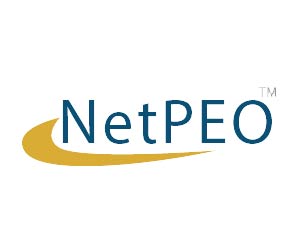When a small business owner turns to someone for help with their HR challenges, they need to have confidence in their new partner. If you partner with a PEO, you trust them to handle some of the most sensitive information your company manages: your employee’s personal information.
The need for trust in your PEO partner is the primary reason it is so important for a PEO to have audited financial statements. You need to be able to believe that your partner is keeping up with the best accounting practices and can give some insight into the likelihood that it will remain financially solvent during the tenure of your partnership.
If you need help finding a PEO partner you can trust, NetPEO is ready to assist you. Our PEO brokers rely on a highly vetted network of trusted partners to provide businesses just like yours with the HR outsourcing solutions they need. To schedule your free initial needs analysis, call us today at (678) 376-1212.
Understanding Audited Financial Statements
Before diving into why audited statements are important, let’s break down what they actually are.
Audited financial statements are reports that have been independently examined by a certified public accountant (CPA) to ensure they are accurate, complete, and compliant with generally accepted accounting principles (GAAP). Unlike unaudited statements, audited financials give you assurance that the PEO’s financial data reflects the true state of their business.
Audited statements typically include:
-
Balance Sheet: Shows the PEO’s assets, liabilities, and equity.
-
Income Statement: Details revenue, expenses, and profit margins.
-
Cash Flow Statement: Tracks cash inflows and outflows to ensure liquidity.
-
Notes to the Financial Statements: Provides explanations and clarifications about financial figures.
Why this matters: Audits verify that a PEO is financially transparent and stable, reducing the risk of hidden financial problems that could affect your business.
Why Financial Transparency Matters in a PEO
When you partner with a PEO, you are entrusting them with sensitive aspects of your business: payroll, employee benefits, tax filings, and compliance responsibilities. Financial transparency is therefore non-negotiable.
Benefits of transparency include:
-
Building Trust and Credibility: Audited statements show the PEO has nothing to hide and operates ethically.
-
Mitigating Financial Risks: Identifies potential issues before they affect clients.
-
Facilitating Informed Decisions: Helps you choose a PEO that is financially capable of meeting your needs.
A PEO that prioritizes financial transparency demonstrates responsibility and professionalism, both of which are critical for businesses that rely on them for core functions.
Legal and Compliance Considerations
Many states require PEOs to demonstrate financial stability as part of licensing and registration. Maintaining audited financial statements is often a crucial component of these requirements.
Why compliance matters:
-
State Regulations: Some states require a surety bond to protect client funds, and the amount is often determined by the PEO’s financial health.
-
IRS and Tax Compliance: Accurate financial reporting ensures proper remittance of payroll taxes and other statutory obligations.
-
Client Protection: Demonstrates the PEO’s ability to safeguard client funds and maintain uninterrupted services.
By choosing a PEO with audited financial statements, your business reduces exposure to regulatory penalties and potential financial loss.
Risk Management and Financial Stability
A PEO manages not only your HR and benefits but also substantial cash flows on your behalf. Financial instability in a PEO can result in:
-
Delayed Payroll: Affecting employee satisfaction and retention.
-
Incorrect Tax Filings: Leading to fines or audits.
-
Interrupted Benefits Payments: Creating legal and ethical liabilities.
Audited financial statements act as a safeguard, providing proof that the PEO has sufficient reserves and effective internal controls. This reassures clients that their operations are in safe hands.
How Audited Financial Statements Reflect a PEO’s Reliability
Audited statements are more than just numbers—they are a reflection of a PEO’s reliability, professionalism, and long-term viability.
Indicators of reliability include:
-
Consistent Profitability: Shows sustainable operations.
-
Strong Cash Reserves: Ensures uninterrupted payroll and benefits services.
-
Clear Financial Reporting: Reflects operational competence and attention to detail.
By providing audited financial statements, a PEO signals that it is committed to transparency and accountability—key factors for long-term business partnerships.
The Direct Impact on Your Business
Partnering with a financially stable PEO has tangible benefits:
-
Employee Confidence: Workers trust that their salaries and benefits are secure.
-
Business Continuity: Operations continue smoothly during economic or operational disruptions.
-
Strategic Decision-Making: Transparent financials allow you to negotiate contracts with confidence.
Your business’s growth and employee satisfaction depend heavily on the PEO’s ability to maintain financial integrity.
Questions You Should Ask a PEO About Their Financials
Before entering a partnership, asking the right questions can reveal a lot about a PEO’s credibility.
-
Are your financial statements audited by a reputable CPA firm?
-
How frequently are your statements audited?
-
Can we review your audited financial statements before committing?
-
How do you ensure compliance with state and federal financial regulations?
-
What internal controls exist to protect client funds?
A trustworthy PEO will answer these questions transparently and provide documentation, making your due diligence process easier.
Common Misconceptions About Audited Financial Statements
Some businesses assume audits are only for large PEOs or that unaudited statements are sufficient. These misconceptions can be risky:
-
Size Doesn’t Guarantee Stability: Even smaller PEOs handle significant payroll and benefits funds.
-
Unaudited Statements Can Be Misleading: Without independent verification, financial errors may go unnoticed.
-
Audits Are Part of Due Diligence: They provide assurance and reduce risk exposure for your business.
Audited statements are an investment in business security and peace of mind.
Types of Audits for PEOs
Not all audits are created equal. Understanding the different types can help you evaluate a PEO more effectively:
-
Financial Statement Audit: Provides a full review of the PEO’s financial health.
-
Internal Audit: Focuses on internal controls, risk management, and operational processes.
-
SOC 1 Audit: Assesses controls relevant to financial reporting, often important if the PEO handles payroll and benefits.
-
SOC 2 Audit: Evaluates controls related to data security, confidentiality, and privacy—critical if the PEO manages sensitive employee data.
Knowing the type of audit a PEO undergoes gives you insight into their operational rigor and financial integrity.
Case Studies: Real-World Implications
Case Study 1: TechNova
TechNova partnered with a PEO based on marketing claims but did not verify audited financial statements. Six months later, TechNova faced delayed payroll and mismanaged tax filings, leading to fines and employee dissatisfaction.
Lesson: Always verify financial audits before partnering with a PEO.
Case Study 2: GreenLeaf Solutions
GreenLeaf selected a PEO with audited financial statements and SOC 1 compliance. The partnership was smooth, payroll was timely, and employee benefits were consistently managed.
Lesson: Audited financial statements correlate directly with operational reliability and business continuity.
How to Read and Interpret Audited Financial Statements
Evaluating a PEO’s audited statements may seem daunting, but focusing on a few key areas can make it manageable:
-
Liquidity: Check cash and equivalents to ensure timely payroll processing.
-
Profitability: Consistent net income indicates financial stability.
-
Debt Levels: Excessive liabilities may be a red flag.
-
Client Fund Handling: Verify whether funds are segregated to protect clients.
-
Audit Opinions: A “clean” audit opinion is a positive indicator; a “qualified” or “adverse” opinion warrants caution.
By understanding these components, you can assess a PEO’s financial health confidently.
Financial Best Practices for Trust and Transparency
When you work with another company, you should feel confident that the company adheres to its industry’s best practices. When it comes to best practices within the PEO industry, the National Association of Professional Employer Organizations (NAPEO) recommends that every organization has an independent financial audit performed by a CPA.
Having audited financial statements allows a PEO to show its partners that it is well managed. An audit by an independent CPA will show that the company is following the generally accepted accounting principles (GAAP) for good fiscal management.
Likewise, audited financial statements may be required by state law. Depending on the state your business is in, your PEO may not be able to be licensed or registered without independently audited financial statements.
Trusting Your PEO Partner
While they are a step in the right direction, independently audited financial statements shouldn’t be the only thing you use to determine whether your potential PEO partner is reliable. Financial failures and fraud can still occur at businesses that receive independent audits.
In addition to asking to see their audited financial statements, you should also ask for:
- A meeting with all the representatives that you’ll be working with
- Experience of the organization’s staff, particularly at the most senior levels
- How long the organization has been in operation
- Information pertaining to the training and certification requirements of its employees
- Their certification with Certification Institute for their risk management practices
- How well they retain their internal staff
- How well the organization keeps its clients
- Contacts with their current clients
- Average duration of their client relationships
- Whether they have (or are seeking) Certified Professional Employer Organization (CPEO) status
- Ratio of employees to clients
These factors can greatly impact how well your PEO partner operates. Reticence to provide this information may be a sign that your potential partner has something to hide.
At NetPEO, we want to make sure that you have all the information you need before deciding on a PEO partner. That’s why we work with you every step of the way, from helping you determine your business needs, to arranging a meeting with the organizations you’ll work alongside. We’ll even work with you to solve any issues that may arise during your partnership.
Other Considerations When Choosing a PEO Partner
While trust in your partner is important, so is the quality and selection of the services they provide. Not every PEO will have the services and benefits that fit with your company. When deciding on a PEO partner, you should also consider:
- What HR outsourcing services they offer
- What technology they work with and/or provide your company
- Employee benefit costs
- Options for customizing benefits packages
- How well you and your employees can access your own data (i.e., self-service options)
- Their payment structure (flat fee for each employee vs. flat percentage of payroll) and the total costs you’ll incur
NetPEO’s Commitment to Customer Satisfaction
Navigating the PEO industry can be a tricky proposition for small business owners without a background in the field. Fortunately, you don’t have to handle your search alone.
At NetPEO, our brokers have years of experience guiding companies just like yours to the right PEO partners. We help you assess what your business needs are and what services are most likely to help your business grow.
As a PEO brokerage, we’re in business to help you. We vet our service providers to make sure that you’re working with experts in the HR outsourcing industry. Our dedication to clients has earned us an industry-leading 100% client satisfaction rating.
To experience the NetPEO difference for yourself, call us today at (678) 376-1212.


